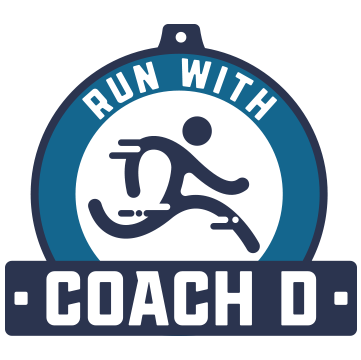Getting the most out of Run Coaching
Working with a running coach is more than a luxury for elite athletes; it's a valuable investment for runners of all levels. The personalized attention, expert guidance, and holistic approach to training can transform your running experience, helping you reach new heights and unlock your full potential. So, lace up your shoes, find a coach, and embark on a journey that goes beyond miles – a journey of growth, achievement, and self-discovery.
One of the primary advantages of having a running coach is the creation of personalized training plans. A coach takes into account your individual strengths, weaknesses, and goals to tailor a program that suits your unique needs. This personalized approach ensures that every run has a purpose, helping you build endurance, speed, and strength strategically. Whether you are a new runner frustrated with the Couch 2 5K app, have been running a few years and are trying to break 2 in the half marathon or an experienced runner taking on a Boston qualifier race.
Running is more than just putting one foot in front of the other; it's a journey that both the body and the mind. Whether you're a seasoned marathoner or a novice just starting, the benefits of working with a running coach can make a significant impact on your performance and overall running experience. To make the most out of the coaching relationship, consider the following tips:
**Clear Communication:**
- Clearly communicate your goals, whether they are related to distance, speed, or overall fitness. Be specific about what you want to achieve.
**Honesty and Feedback:**
- Provide honest feedback about your training sessions, including any challenges or concerns. This helps the coach tailor your program to better suit your needs.
**Regular Updates:**
- Keep your coach informed about any changes in your schedule, health, or lifestyle that might affect your training. Regular updates ensure that the training plan can be adjusted accordingly.
**Set Realistic Expectations:**
- Work with your coach to set realistic and achievable goals. This helps in maintaining motivation and prevents disappointment if expectations are not met.
**Consistency:**
- Stick to the training plan consistently. Consistency is key in running improvement, and deviating from the plan without consulting your coach can hinder progress.
**Open Communication Channels:**
- Establish clear communication channels with your coach, whether it's through email, phone calls, or a dedicated coaching platform. Having an open line of communication ensures that you can address any concerns promptly.
**Ask Questions:**
- Don't hesitate to ask questions about your training plan, the purpose of specific workouts, or any other aspect of your running. Understanding the rationale behind the training can enhance your commitment and motivation.
**Be Open to Feedback:**
- Be open to constructive criticism and feedback. Your coach is there to help you improve, and being receptive to their input can accelerate your progress.
**Trust the Process:**
- Trust your coach and the training plan. It's normal to have doubts, especially during challenging phases, but trusting the process is crucial for long-term success.
10. **Listen to Your Body:**
- Pay attention to your body and how it responds to training. If you're feeling fatigued or notice signs of overtraining, communicate this to your coach so adjustments can be made.
**Celebrate Achievements:**
- Celebrate your successes, whether big or small. Acknowledge your achievements with your coach, and use positive reinforcement to stay motivated.
**Stay Patient:**
- Improvement takes time. Be patient and trust that the consistent application of the training plan will lead to positive results over the long term.
Remember, the coaching relationship is a partnership, and your active involvement and commitment play a crucial role in its success. Endurance sports like running are not only physical battles but mental challenges as well. A running coach helps you develop mental toughness, teaching strategies to overcome obstacles and push through mental barriers. Whether it's conquering the wall during a marathon or managing race-day nerves, a coach provides the tools and techniques to optimize your mental game.
Let’s take on a training cycle together!
Coach D
